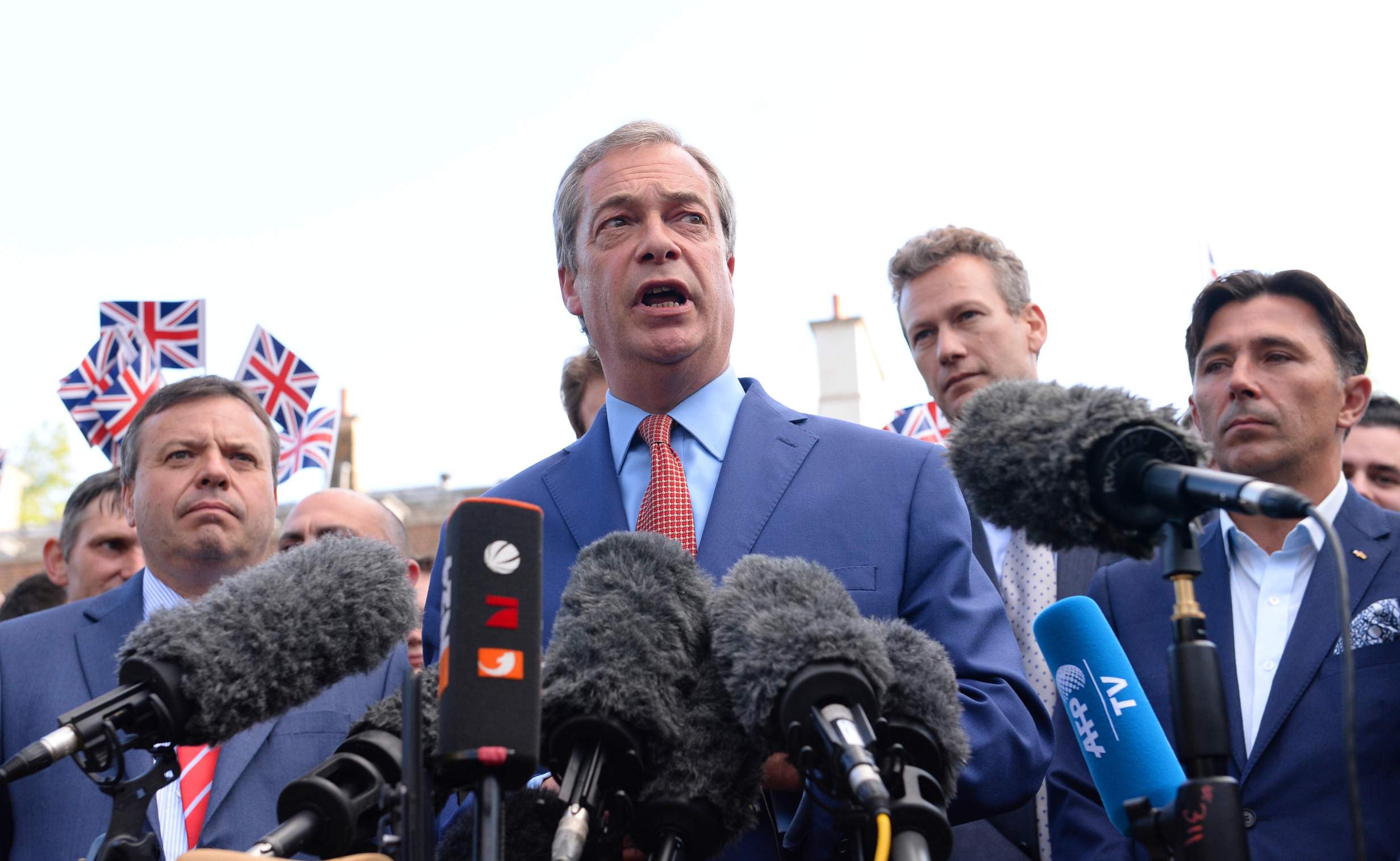
Read our Monthly Magazine
And support our mission to provide fearless stories about and outside the media system
The British public are opposed to politicians presenting current affairs programmes, newly-released YouGov polling suggests.
The findings suggest broadcast regulator Ofcom’s decision this week – to allow the likes of Reform UK’s Nigel Farage and Lee Anderson to continue presenting their own political GB News shows – is out of step with public opinion.
A majority (51%) of voters surveyed by YouGov said they think politicians should not be allowed to present current affairs shows, while 29% agreed they should and 19% said they didn’t know.
Once those who don’t know are excluded, almost two thirds (64%) did not agree with Ofcom’s rules that allow serving politicians to present current affairs programming on TV and radio, while 36% said they should, according to the YouGov polling for the University of Cardiff’s School of Journalism.
Reform UK supporters are the only group of party voters who appear to support (44%) more than oppose (39%) politicians presenting current affairs programming in broadcast media, the research reveals.
ENJOYING THIS ARTICLE? HELP US TO PRODUCE MORE
Receive the monthly Byline Times newspaper and help to support fearless, independent journalism that breaks stories, shapes the agenda and holds power to account.
We’re not funded by a billionaire oligarch or an offshore hedge-fund. We rely on our readers to fund our journalism. If you like what we do, please subscribe.
Perhaps unsurprisingly, support rises to 58% for frequent or very frequent GB News consumers – the highest level of backing for politician-presenters among audiences – though 29% said they should not.
Following consultation, Ofcom made changes this week to its guidance on politicians presenting news and curent affairs programmes, amid growing concern about conflicts of interest.
Ofcom said its amendments now “make explicit” that if an MP presented news in a non-news programme, then their elected status would likely be a relevant factor in considering whether that news was presented with “due impartiality.”
Existing guidance states that “no politician may be used as a newsreader, interviewer or reporter in any news programmes unless, exceptionally, it is editorially justified.”
The updated code now clarifies “exceptional” circumstances are “those which cannot be controlled or foreseen by the broadcaster.”
Don’t miss a story
“We also make clear that we would expect such situations to be rare, and for licensees who use politicians as presenters to put appropriate contingency arrangements in place to avoid these situations,” Ofcom said in a statement.
However, politicians have traditionally side-stepped this rule by hosting what are deemed “current affairs” programmes, such as political panel shows, rather than straight-forward news presenting. These, such as Nigel Farage’s four-times-a-week GB News show, are likely to continue as before.
Moreover, Ofcom consulted on a proposal bar politicians from being used as “a newsreader, news interviewer or news reporter in any type of programmes unless, exceptionally, it is editorially justified,” but decided against it.
In a statement on the changes, Ofcom said: “There is no Ofcom rule that prevents a politician from presenting or appearing on a TV or radio programme – providing they aren’t standing in an election taking place, or about to take place, and that the programme otherwise complies with the Broadcasting Code.”
The regulator noted that some respondents “wanted us to extend our rules to prevent politicians from presenting non-news, including current affairs programmes” but it fell outside the scope of their consultation.
The broadcasting body asserted that its Broadcasting Code contains “robust rules” requiring broadcasters to preserve “due impartiality” on matters of political controversy and current public policy, applied to all programmes, including current affairs programmes presented by politicians.
“If a programme raises issues under these rules, we will not hesitate to investigate and take appropriate enforcement action, as we have done several times previously.”
However, Ofcom’s decision not to ban politicians from presenting current affairs programmes or acting as news reporters in general contradicts YouGov polling conducted earlier this month showing that voters strongly oppose politicians presenting such shows.
Professor Stephen Cushion of the Cardiff School of Journalism (Cardiff University) told Byline Times: “So far the regulator has relied on focus group research to assess how people feel about politicians presenting programming.
“Our representative survey of the UK shows the public are against them being allowed to do so and more broadly shows people do not want TV and radio to become more politically opinionated.”
And he warned against it becoming “normalised” for “the leaders of political parties [to] host their own prime-time TV programmes”.
But the journalism professor also suggested Ofcom had appeared to recognise the “strength of feeling” against politicians presenting programming, and noted the regulator now says it will explore conducting further research into audience attitudes towards news and current affairs on TV and radio.
Responding to Ofcom’s decision on Bluesky, language lecturer and academic Alex Hope wrote: “It’s obviously a conflict of interest. There manifestly is a difference between presenting and being invited on a show. As the presenter, you have the authority or the programme and editorial support behind you.”
Another reader added the decision would continue to allow politicians to make “party political broadcasts, and dress [them] up as news or being independent.”
“A sitting MP [or] councillor should never be allowed to [lead] a programme, they should only be on a guest and ideally as part of a panel.”
Another dubbed the regulator a “chocolate teapot,” while Janet McCulloch said standards were “slipping into a quagmire.”
Dubbing Ofcom’s changes “weak as water”, one reader added: “I don’t see any difference between ‘News’ and ‘Current Affairs’, when the latter is often just a deeper dive on something reported in the former. [Ofcom is] failing to adapt to the broadcast landscape.”
Got a story? Get in touch in confidence on josiah@bylinetimes.com


